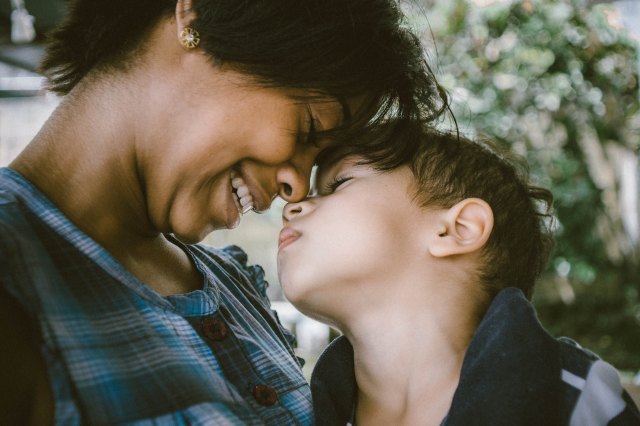Get the kids to school then get to work, or get back home to care for younger children during the day. Pick up the kids from school and make sure they get to their after-school activities. Get everyone home, get dinner on the table and don’t forget to make sure homework gets done!
Whatever your version of the typical weekday looks like, ask yourself this: even though you are often in your child’s presence, how much personal interaction are you really having with them? Sure, you’re physically with them, but do you feel connected? Present? Aware of and appreciating each other?
These questions get even more difficult to answer when we account for just how much time we spend checking social media and email on our smartphones or tablets when we’re with our kids. Is just being in the vicinity of each other enough to support a healthy, happy parent-child relationship? Research says no.
Not one of us will be on our deathbed wishing we had spent more time on our phones, am I right? So what can shift us from disconnect to connection with our children?
The One Thing Kids Need Most: Your Full Attention
We need to take a fresh look at the way we rush through our lives and, instead, choose to consciously give our kids our full attention—the one thing they crave most from us. Here are a few ways we can explore mindfully connecting:
- Make the Most of Ordinary Moments: Don’t wait for the perfect moment on vacation or when the house is quiet (which may never happen). Use everyday moments to connect. I call these “I see you” moments, where you catch each other’s eyes for just a second and feel a moment of connection. Next time you have one of these moments, let it linger. Share a hug or a laugh before you go on to whatever comes next in your day.
- Create and Foster Fun and Unique Family Rituals: One of my family’s favorite rituals is a kitchen dance party. Michael Jackson or ‘90s hip hop are our go-to jams. It’s something we enjoy not only as a family, but also when we have friends over. Life can become so dang serious, so it’s important to take time as a family to play. We use dance parties when everyone is stressed or when the household has become grumpy. But above all, they are about enjoying life together. Ask yourself: What are your family rituals? Which parts of your life could benefit from adding one in? How do you and your family let loose and have fun? What are some new ways you can imagine adding more play into your lives? What did you love to play as a child?
- Catch Them Being Good: Spend time each day reflecting on what you appreciate about your child. Humans have a serious negativity bias, so it’s super easy to start feeling like your children are a total disaster and your relationship with them stinks. Our family has a gratitude jar on the kitchen counter with some little pieces of paper and pens in a bowl right next to it. We often stop during the day to write a few things down we appreciate about each other or our lives. I also use my journal to jot down these reflections, or—better yet—I tell my children what I appreciated about them that day as they fall asleep at night. Being specific is helpful. Instead of sharing “you were really kind today,” you might say “I noticed how you helped your brother find his shoes this morning when he was running late. That was really kind.” Catch them being good whenever you can.
The fact is, many of us have real difficulty just being where we are, looking around, smelling the scents in the air, listening to the sounds of nature or the world going by—in other words, experiencing life as it unfolds, moment by moment. When nothing appears to be “happening,” many of us are compelled to reach for our technology.
I’ve actually made a practice of noticing when someone picks up their phone, which always triggers in me a desire to pick up my phone. Whenever I feel it, I bring awareness to this urge. What’s driving it? Is it boredom? Loneliness? Sadness? Then I sit with whatever’s there until it dissolves. And yes, sometimes I just check my email or social media sites, but learning to sit with the urge is ultimately more gratifying and keeps me away from technology addiction.
I’ve found it helpful to make an agreement with my family to refrain from using technology in the common area of our home. When we are in this space, we give our family the gift of our attention. It can also be helpful to choose a day over the weekend when the whole family puts technology aside.
The more we can incorporate more mindful connection, less screen time and less mindless rushing into our daily lives, the better we can deliver the quality time our kids need most. Do an experiment this week to see how you can begin to shift your family’s priorities to include more meaningful time together. Science says your kids will benefit, and I’m living proof that parents will, too.











